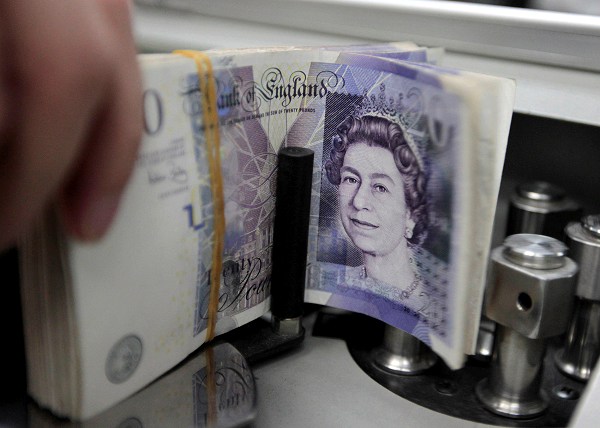TOKYO: The pound remained under siege on Monday, sliding back toward a 31-year low and reflecting the deeply bearish mood of investors after Britain opted to exit the European Union, a moved that has triggered shockwaves across global markets.
The euro was also under pressure, pulled down by sterling, as Brexit clouded the future of the European Union.
The Sterling was down 2.3 percent at $1.3381, within shot of $1.3228 low plumbed on Friday, its lowest since 1985. The pound dropped as much as 11 percent on Friday as positions betting on Britain remaining in the EU were reversed en masse.
The impact from Brexit – which also generated much turmoil in global equity, commodity and bond markets – was expected to grow due to its likely negative effect on the European economic and political landscape.
“The focus now falls on Europe, where Brexit could cause a domino effect of states wanting to leave the union. While this has already been talked about, the main concern for the currency market is European political uncertainty leading to monetary and fiscal policy paralysis,” said Junichi Ishikawa, forex analyst at IG Securities in Tokyo.
Spanish elections delivered a hung parliament for the second time in six months on Sunday, adding to political uncertainty in Europe.
“As for the pound, it could probe fresh lows. The currency could fall further as the Bank of England may cut interest rates to support the economy in the wake of Brexit,” Ishikawa said.
Many economists forecast Brexit would at least temporarily reduce UK growth. Goldman saw Britain entering a mild recession within a year due to a deterioration in its terms of trade, scaled-back investment and tighter financial conditions because of exchange rate fluctuations, and weakness in risk assets.
The pound was down 2.9 percent against the Japanese currency at 136.05 yen after reaching a 3-1/2-year low of 133.65 on Friday.
The safe-haven yen also rose against the dollar. The greenback fell 0.5 percent to 101.680 yen after shedding 1.8 percent last week.
In a testimony to Friday’s big swings, the U.S. currency still remained distant from the 99 yen mark, its lowest since November 2013.
“If the yen was to strengthen further, it likely won’t be due to speculative forces alone. The so-called ‘real money’ Japanese investors could repatriate funds and add to yen strength,” said Koji Fukaya, president of FPG Securities in Tokyo.
But Fukaya said that it was too early to compare Brexit to the Lehman and Greek financial crises, as it was unlikely to result in the immediate collapse of financial institutions.
Market focus was on whether Japan would intervene to arrest the yen’s appreciation should it gain much more.
Japanese authorities have so far limited their action to verbal warnings.
Japanese Prime Minister Shinzo Abe said on Monday that he had instructed Finance Minister Taro Aso to watch currency markets “ever more closely” and take steps if necessary, four days after Britain’s historic vote to leave the EU.
The euro was down 1 percent at $1.0997 potentially crawling back towards $1.0912, the three-month low reached on Friday.
The Australian dollar, vulnerable in times of risk aversion, shed 0.9 percent to $0.7396 after losing more than 2 percent on Friday.













